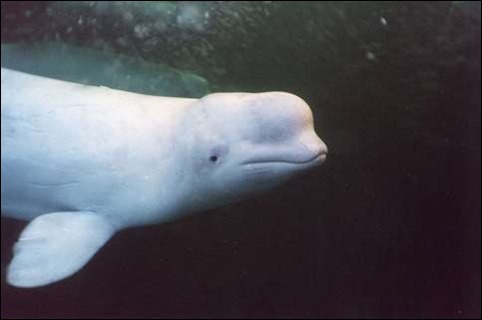NOAA Says No to the Georgia Aquarium

In a stunning victory for the anti-captivity movement this week, the U.S. government’s National Oceanic and Atmospheric Administration (NOAA) denied the Georgia Aquarium’s application to import 18 wild-caught beluga whales from Russia and share them around the country with SeaWorld and Shedd Aquarium.
It would have been the first time since 1993 that an aquarium had imported dolphins and whales directly from the wild. And it would have set a major precedent, regressing to a time before public outcry forced the captivity industry to agree to stop capturing marine mammals to put on display.
Animal protection groups organized major opposition to the Georgia Aquarium’s plan. The Kimmela Center played a key role in providing scientific support for opposition arguments and reaching out to colleagues in the scientific community. Executive Director Lori Marino helped to create and submit a Scientists Statement Opposing the Beluga Imports by the Georgia Aquarium to NOAA last year and it was signed by nearly thirty prominent marine mammal scientists. She also provided testimony opposing the application at a public hearing last October.
A decision by NOAA has been expected since February. And word went around in May that NOAA was expected to give a thumbs-up to the Georgia Aquarium any day.
But this week, NOAA issued its decisions: No to the Georgia Aquarium. The agency described its decision as having hinged on three key criteria:
* NOAA Fisheries is unable to determine whether or not the proposed importation, by itself or in combination with other activities, would have a significant adverse impact on the Sakhalin-Amur beluga whale stock, the population that these whales are taken from;
* NOAA Fisheries determined that the requested import will likely result in the taking of marine mammals beyond those authorized by the permit;
* NOAA Fisheries determined that five of the beluga whales proposed for import, estimated to be approximately 1½ years old at the time of capture, were potentially still nursing and not yet independent.
More details from NOAA on their decision are here, where the agency also describes what comments from the public were the most impactful:
The comments that were most helpful to our decision-making process addressed the specific MMPA and regulatory criteria that we must use to make a decision and discussed why the commenter felt the application did or did not meet them.
The comments we received pertaining to humaneness determinations (capture and transport), the age of the animals at capture, the status of the Sakhalin-Amur beluga stock, and the effects of the ongoing capture operation on beluga stocks were directly related to the MMPA issuance criteria and considered further in the decision making process.
In general, comments regarding opposition to captivity were not considered substantive as the MMPA allows for public display of marine mammals. Also, the comments we received related to the care and maintenance of marine mammals in captivity fall under the purview of the Animal Welfare Act and the USDA’s Animal and Plant Health Inspection Service, so we were unable to respond to them as part of this process.
The Georgia Aquarium issued a statement saying they have yet to decide whether or not they will appeal. On NOAA’s decision, they offered the standard talking points used to justify keeping wildlife in captivity:
“Sadly, the decision places the long-term global sustainability of an entire species in limbo. The animals in question would help to ensure the sustainability of beluga whales in human care in the U.S. for the purposes of education, research and conservation.
“Through ongoing conservation and research efforts, our team is proactively seeking solutions to learn all we can to protect these incredible animals in the wild in the face of increasing challenges to their survival as the effects of climate change, increased shipping and exploration for natural resources impact them in their natural habitats.”
Neither the Georgia Aquarium, nor SeaWorld, nor any other marine mammal captive facility has, in fact, presented any evidence that they are helping to protect and “conserve” belugas. It is striking that the criteria NOAA used to deny the imports directly mention the possible negative impact upon the whales by the Georgia Aquarium’s proposed actions.
NOAA’s decision is not the end of the story. Beyond the fact that the Georgia Aquarium may well appeal the decision, there is the question of what happens to the belugas now.
However, this decision has been important for preventing the proliferation of the international trade in wild-caught marine mammals in the U.S., which the Georgia Aquarium was hoping to reinstate.
2 Replies to “NOAA Says No to the Georgia Aquarium”
Comments are closed.

Thank you Lori for all your hard work and efforts!
Wish I could have made more substantive comments, but I guess I don’t have access to the information, or the way to phrase it, that would sway the NMFS collective mind. However, I am very glad that people like Lori Marino do!